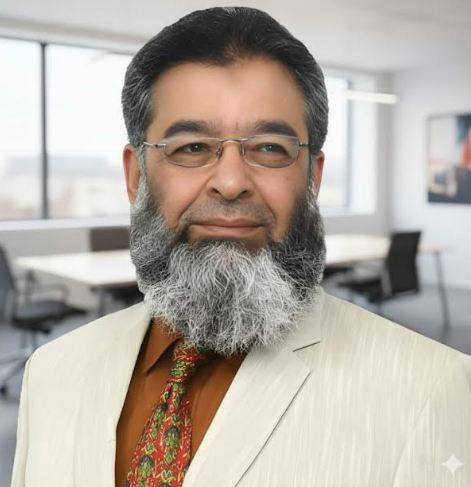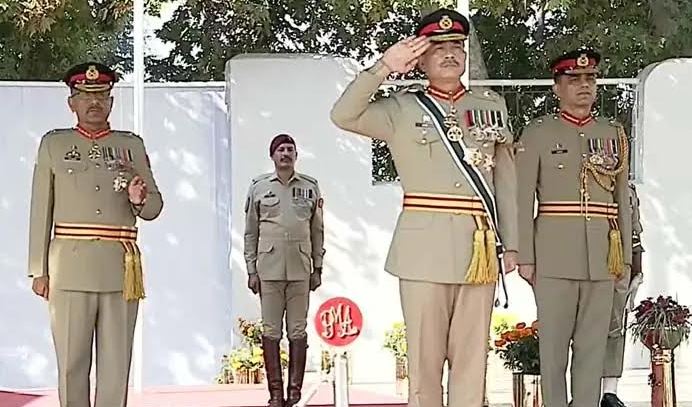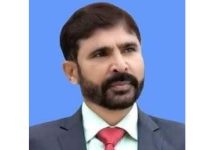
by Muhammad Mohsin Iqbal
There are moments in a man’s life that shape him not by the triumphs they bring but by the lessons they leave behind. My earliest dream was as simple and as grand as the sky; to become a pilot in the Pakistan Air Force. After matriculation, I cleared the preliminary examinations and travelled to ISSB Kohat with a heart full of hope. After five or six days of trials, interviews and restless nights, I returned home and then received a letter whose one word – “Not selected” – fell heavier than any storm.The sorrow was sharp, but it did not break my resolve. I decided to cast my lot with another noble calling and, after F.Sc. in 1986, set my sights on the Pakistan Military Academy. Again, I passed the preliminaries and again Kohat summoned me. I faced the stages with steadiness, but on the last day the commandant’s interview brought a verdict that bore me the curious consolation of practical counsel: I was told I would perhaps fare better in civil service than in the army. Once more the answer was “No.”
Those refusals might, to a lesser spirit, have been the end of a story. For me they became the preface to another. I’ve realized that time transforms the disappointments of youth into the foundation of conviction.Time has shown that you can serve your country no matter where you are, as Allah is the most capable and wise.In 2025, I was once again lost in the windows of my past while listening to a victorious General Field Marshal Syed Asim Munir address his newly minted officers. His address to his officers was like feeding a newborn baby its first “Ghutti”.
The Field Marshal’s words—measured, firm and suffused with faith—were not merely ceremonial. He applauded the professionalism and discipline of the cadets and then held up the history of the Armed Forces as a living testament to sacrifice and courage. He spoke of recent trials and of victory in a tone that fused sober realism with unshakable resolve; that Pakistan’s defenders had neutralized threats, downed advanced assets, and displayed multi-domain warfare capabilities; that the nation had stood like a solid wall, renewed in patriotism and unity.
What struck me most in that address was its insistence on moral clarity. “You are the heirs of martyrs—live worthy of their memory,” he said, reminding young officers that commission is a covenant with history and family alike. He counselled them to value intellectual readiness as much as physical courage, to embrace lifelong learning and technological innovation, and to be wary of the post-truth era where perceptions often eclipse reality. “Do not become tools and victims of Information Disorder,” he warned, urging clarity of mind as the greatest of strengths. Throughout his discourse there ran a singular thread; that victory is forged not by rhetoric but by training, character and the courage to stand firm in the face of odds.
Hearing such words as one who had once been cast aside by selection boards was humbling and elevating. The general’s address closed the river in a jar; it distilled the vastness of national sacrifice, the complexity of modern warfare, and the intimacy of personal duty into instructions one could tuck into the breast pocket of the soul. Where my adolescent ambitions had sought the thrill of flight and the pride of uniform, the speech taught me to revere the larger enterprise—the preservation of a nation’s dignity and life. I understood then that service assumes many forms; civil officers, scholars, journalists, parents and soldiers all contribute threads to the same national fabric.
The Field Marshal’s insistence that the bond between the people and the Armed Forces is unshakable resonated deeply. He reminded cadets that nothing should be more sacred than the safety of the people and that no duty more binding than the defence of the homeland. He spoke of Pakistan’s renewed stature, of its contributions to peacekeeping and regional stability, and of the enduring duty to stand by oppressed brethren from Kashmir to Palestine. He saluted the martyrs and the ghazis and, with faith unblunted by the harshness of conflict, urged readiness for the challenges ahead: “Pakistan’s flag will Insha’Allah continue to rise because its defenders, i.e. Pakistani nation, never fail.”
From my vantage point, years later, the two refusals that once stung me have become benedictions. They redirected me into the service of the state in different but no less sacred ways. They taught patience, humility and the worth of contributing where one can most effectively serve. The Field Marshal’s address, with its blend of piety, professionalism and patriotic clarity, taught me another lesson: that leadership is less about commands than about forging conscience, less about distinction than about duty. It is in that spirit—of resolute humility and unflinching service—that I continue my work for Pakistan, grateful for the roads not taken and steadfast in the road chosen.
If destiny denied me the cockpit, it gave me instead a higher vantage; to witness, to record, and to exhort. When a victorious general speaks to his young officers, he plants in their ears something like the “Azaan” to a newborn—the summons to rise, to guard, and to love that which is greater than self. May we all—soldiers and civilians alike—answer that call with hearts full of faith and hands ready for toil. Pakistan Armed Forces Zindabad. Pakistan Hameesha Paindadabad.

















